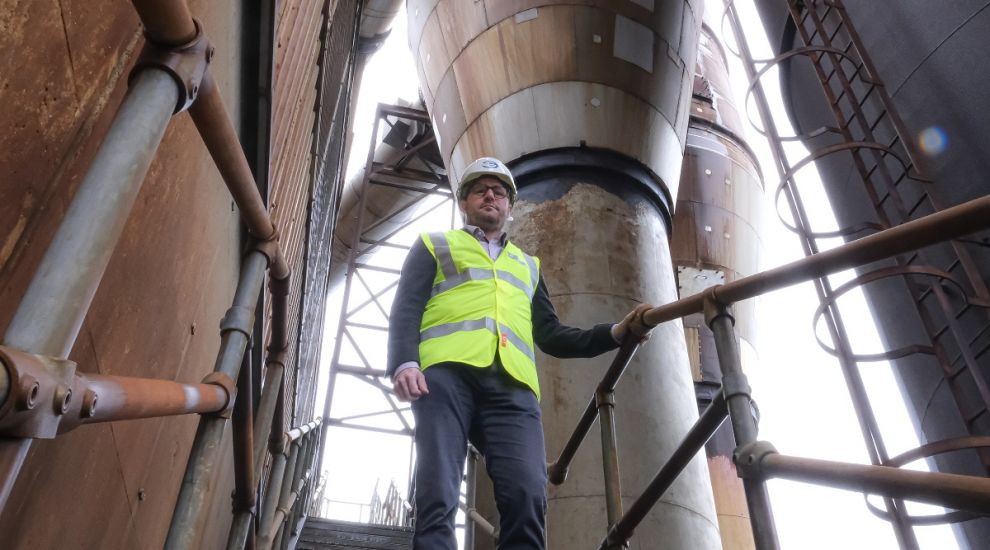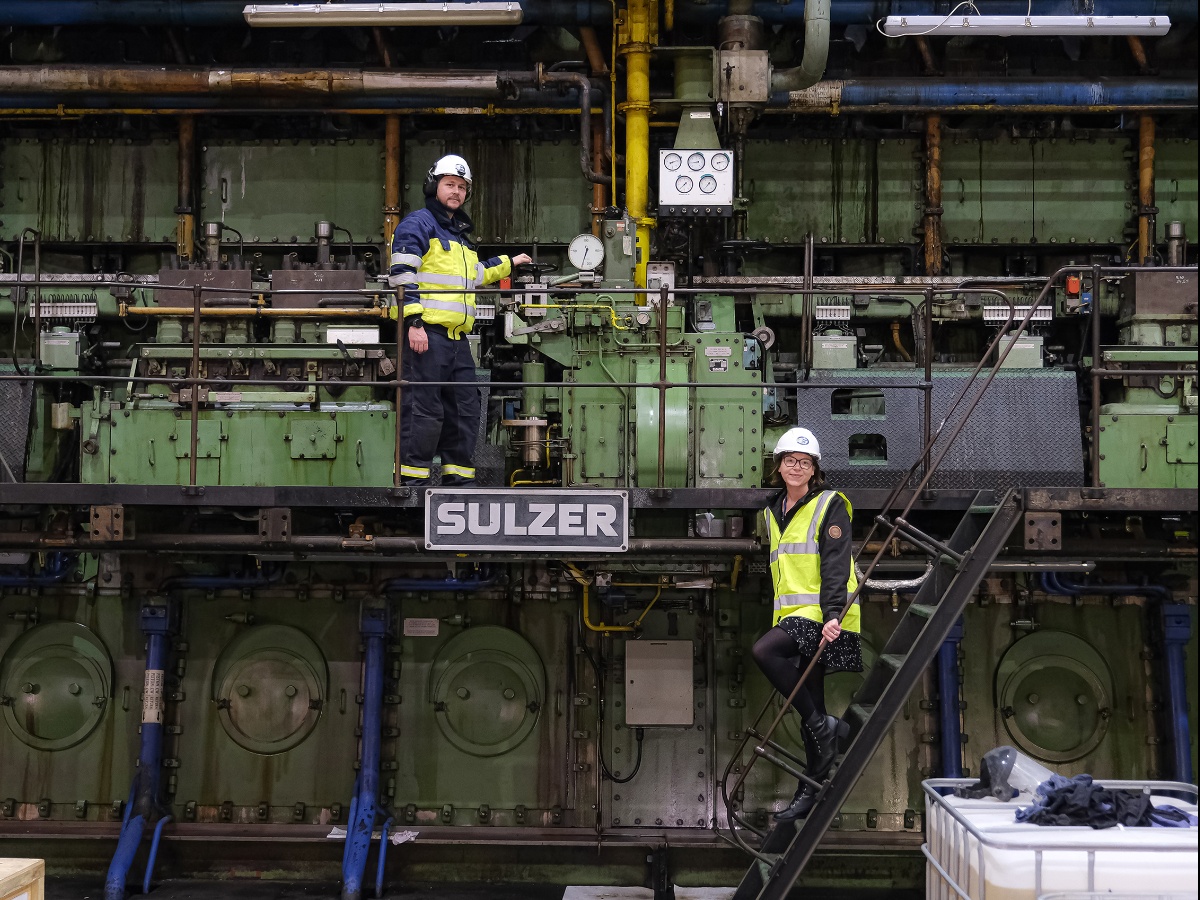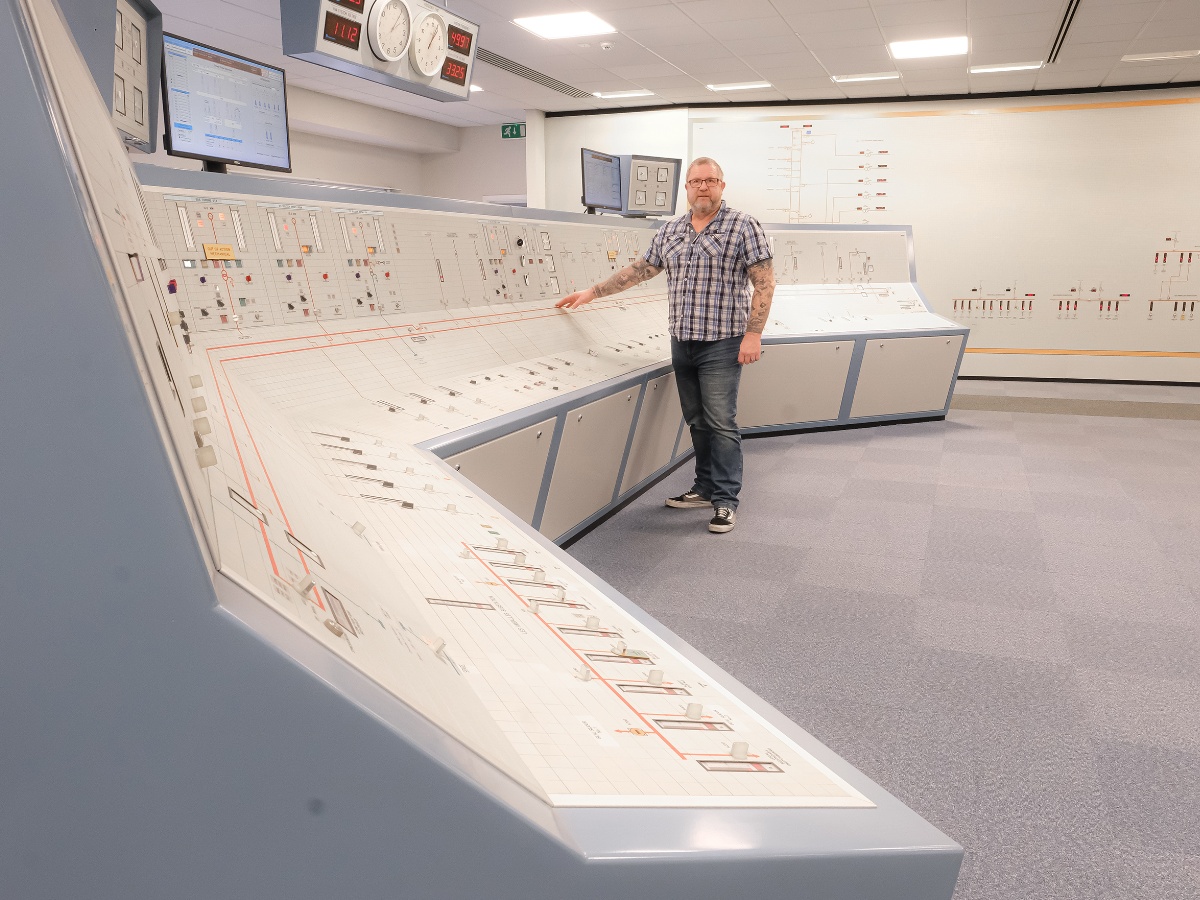


At a time when we're being asked to think green and to cut down on our electricity usage, not just to save our own money but to help keep the lights on in Europe, Guernsey Electricity is making the bold claim that it is "powering the future" - both ours and its own.
With a 2050 deadline looming for the island to be carbon free, Guernsey Electricity's Chief Commercial Officer Stuart Blondel told Laura Clayton how Guernsey Electricity plans to help us hit that.
"The world has set its goals around decarbonising and dealing with climate change by reducing the amount of emissions we put into the environment, and energy use is a big contributor to carbon emissions," he explained. " Guernsey has done the same, in the Energy Policy of 2020 it said by 2050 we would like to have reached a net zero carbon position."
2050 will creep up on us quickly, Stuart acknowledged, but he said a lot of the work to ensure the island is carbon neutral by then will seem, to the untrained eye, to be creeping along rather slowly. The truth is that consistent progress is key to meeting the 2050 target.
“I don't think we should be waiting on a miracle solution. It may be that some technology comes along in the meantime, but we can't sit and wait for change to happen on its own.”
"The way electricity used in Guernsey is produced is already very low carbon, so we've come quite a long way already. I think it's really important to recognise that electricity already makes up a significant proportion of the overall energy used on island but to achieve net zero carbon we need to decarbonise our whole energy system, transitioning our energy use towards low carbon electricity is a key part of achieving that.
"At the moment, the majority of the electricity that we use on island is imported from Europe and that comes from low carbon, certified renewable sources. In addition to this, a small proportion of renewable energy is generated locally through the solar arrays seen on some properties and on public buildings like the power station and post office. Some of this electricity is used by the property and the rest of it feeds back into the local grid to end up being used by other consumers. As we see more people turn to renewables to power their own lives, we expect the proportion of locally generated renewable energy to rise and create a more balanced mix of both imported and locally available resources.”

Pictured: Guernsey's energy needs are changing fast. Credit: Paul Chambers.
However, we will still have to supplement imported and locally generated clean energy with power produced from fossil fuelled diesel engines at the power station. Stuart said that can be as little as 6% or 7% in any given year, but Guernsey Electricity is cognisant of the impact on the environment and the visible evidence of the pollution it causes when these generators are run.
Long term he says Guernsey Electricity is keen to import more energy from renewable sources, via a second subsea cable, which would directly link us to Europe, meaning we could rely less on our fossil fuelled power station and redirect efforts towards upgrading and future-proofing the local network.
While more locally produced electricity would reduce the need for 'topping up' our imported power using the power station, we will still need the power station as a back up for any time where the imports may become unexpectedly unavailable.
Stuart says the power station will always have a vital part to play in powering the future, even if only for emergency back-up - and that may be seen as counteractive to wider efforts to be 100% carbon free.
"However, the power station will need to evolve, subtly," he explains, "and when I say subtly, I mean by the type of technology we might use and possibly the type of fuel we use to run it. But one of the key factors is the role of the power station, whether it need to continue providing a top-up service or just a back-up service and amount of security and resilience we require from it, and that is very much dependent on the resilience and capacity in our imports.
"So, if we increase our capacity to import and the resilience of that supply chain then we can decrease the amount of supply security we require on island.
"That's a really important consideration because right now we know we need to make investments in the power station as many of those assets are approaching the end of their useful life. So, the time has come to make some investment decisions."
Those investment decisions will involve many millions of pounds, at a time when public budgets are already facing constraints and personal purses are feeling the pinch too. A springtime debate is expected on Guernsey's Electricity Strategy, which has seen an extensive consultation process involving a range of industry stakeholders and businesses on island. This political debate will have an impact on all of us, and our energy supplies and wallets.

Pictured: Preparing the grid for future demand is a central mission for the utility. Credit: Paul Chambers.
Stuart says it will be a really important topic of debate which will guide the pathway Guernsey and subsequently Guernsey Electricity takes to meet that 2050 net zero goal.
The work towards being carbon neutral within less than 30 years is ongoing and generating changes behind the scenes at Guernsey Electricity, says Stuart.
"There're continual changes, investment and upgrading measures being taken all the time. A key area of focus for us is on the island grid. The first part of the story is to get the power to the island, or generate it on-island, but then, we have to distribute it across the island to our customers, and as more customers choose to heat their homes and power their cars with electricity, we must continue to upgrade our power grid to make sure that supply is available.”
"We can't do that in one go either. There's over a thousand kilometres of cable underneath the island's roads - we continually upgrade that and replace it, because the cable has a life expectancy, so whilst we continually replace, we also upgrade in view of what our anticipated future requirements are. But that certainly can't be done overnight - it's a long continual programme of investment."
Changing peoples' mindsets has always been part of Guernsey Electricity's plan for powering the future.
By encouraging individuals to make small lifestyle changes like setting the dishwasher to run overnight rather than during peak time, the firm says there are multiple ways we can all contribute to the net zero 2050 target. Stuart says the message is clearly getting through to people now that we all need to pull together on this for the sake of powering everyone's future.
"I think the general population right across the world is starting to see the importance of reducing our impact on the environment and it's starting to become far more aware of the ways in which we can do that.
"Our energy consumption is one of those - and not just our total consumption but how and when we consume it – avoiding wastage and minimise our peak time usage. I do think public awareness is really building on that but it's obviously something that we must continue to do educate and inform on.
"We've seen particularly in the last year the energy crisis in Europe really spike energy prices and so the consciousness of the need to control energy use has really increased.
"At Guernsey Electricity we've recently been running a campaign called 'Powering Life for Less Challenge' to try and help our customers make informed decisions and achievable changes in their daily lives to help manage their energy bills.”
It’s rare for any business to encourage its customers to use their product less – especially a company which needs to make money to fund expensive capital investment projects, but Stuart says responsible usage is key to achieving local carbon neutral targets and to playing our part in powering the future for generations to come.
"It's an important topic to set a pathway for the future and we want to get that pathway right in terms of delivering the right outcome but also right in terms of making sure that the service we provide is the best quality for our customers and affordable as well," he says.
"Being connected to Europe via the subsea cable doesn't just mean that Guernsey takes from the European market - it means we can play a part in that European system as well so where we've recently seen in Europe the possibility of power outages in France because of a shortage of supply, Guernsey is able to respond to that situation and temporarily turn down what we take from the European grid by running our own generators.
While we are at the end of the line, we are a consumer of European electricity, but we can actually support the system because we have generating assets on the island. So, in the European energy crisis, our connectivity has become a really important relationship and we're more than just a customer."
Stuart says that relationship could in the future see local investment in renewables and cleaner generation help feed power into the European grid. Powering the future for many more than the island's few residents.
While solar panels may seem few and far between now, in the not-too-distant future there are likely to be many more, and they could be utilised to generate electricity that can be stored, exported, or used locally. Stuart says any of those options is better than letting it be wasted if there were generating more than we need.
"We recognise that there is a change in the way electricity is being delivered and energy is being used - there’s a shift globally towards the use of electricity to power our lives. Whether that be heating our homes, running our transport and appliances and other such things - so in powering the future, we recognise that Guernsey Electricity has a huge part to play in the future provision of energy and that’s particularly important because electricity is a highly effective means to decarbonise energy use.
"Electricity can be derived from renewable sources and is an efficient way of transporting that renewable energy from one place to another. So, you generate energy using renewable technologies, you can then feed it into the power grid and transport it to the point of use: i.e., powering your home, powering your car, powering your life."
This story was first published in the current edition of CONNECT magazine, Express' sister publication.
The online version of CONNECT magazine can be read HERE.
Pictured (top): Stuart Blondel. Credit: Paul Chambers.
Comments
Comments on this story express the views of the commentator only, not Bailiwick Publishing. We are unable to guarantee the accuracy of any of those comments.